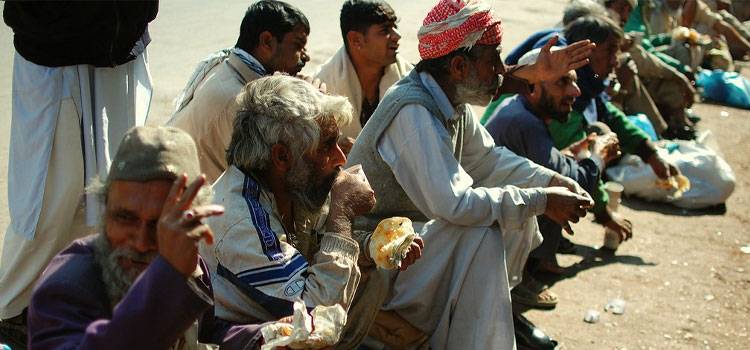
“I feel overburdened with the cost of day-to-day living. I often get suicidal thoughts,” says Karim who works as a waiter at a local hotel in taluka Bakrani, district Larkana in Sindh. He earns Rs400 a day.
Rural poverty is a reality in Pakistan. Those in the power corridors have turned a blind eye to the sufferings of poor people. As per Pakistan National Human Development Report (NHDR) 2020, the total privileges enjoyed by Pakistan's most powerful groups, such as feudals, corporate professionals, exporters, large-scale traders, high-net-worth individuals, military establishment, and state-owned enterprises, summed up to Rs2,660 billion in 2017-18. Equivalent to a percent of the country's GDP, these privileges can be broken down into favourable pricing, lower taxation, and preferential access.
According to Dr. Hafiz A. Pasha, lead author of the NHDR 2020 report, the corresponding cost of social protection programmes is estimated at Rs625 billion. He believed that diverting just 24 percent of these privileges to the poor could double benefits available to them.
The NHDR report has convincingly concluded that powerful groups' accumulation of wealth and privilege maintains inequality and, in many cases, infringes on rights of others, thereby creating further inequality.
Managing Director IMF Kristalina Georgieva recently hit headlines in global newspapers for asking the Pakistan government to ensure that it taxes the rich and protects the poor by offering subsidies only to the most deserving people. “My heart goes out to the people of Pakistan. They have been devastated by the floods that affected one-third of the population of the country,” she said Kristalina Georgieva, while talking to reporters on sidelines of the Munich Security Conference.
Unequal distribution of wealth is the root cause of economic deprivation. Nelson Mandela said, ”Poverty is not an accident. Like slavery and apartheid, it is man-made and can be removed by the actions of human beings”.
It would not be an exaggeration to infer that the cash-strapped individuals and the state of Pakistan are facing the same financial fate. The poor people are bearing the brunt of private-money lenders, and the state is caught in the trap of international lending entities. Pakistan Institute of Development Economics (PIDE) recently revealed that over 31 percent of Pakistan's youth are currently unemployed and of this figure, 51 percent are females, with many of them holding professional degrees.
Not long ago, PIDE had apprised the Senate Standing Committee on Planning and Development that 40 percent of educated (undergraduate or graduate) women were unemployed countrywide.
In a recent article for the Pakistan Today, Zoha Aziz wrote that jobless people could be dangerous to Pakistan's wellbeing. She warned that the unemployed youth of Pakistan are getting frustrated and falling prey to drug addiction, theft and violence.
Tariff levied on utility bills and hike in petroleum products and their inflationary impact continue to unleash economic troubles for the wider sections of society as they have lost the purchasing power.
The government and the opposition are fighting for their electoral survival and political relevance through petty politics and blame game. The crippling economic conditions have compelled the educated and skilled labour to migrate to other countries in search of better jobs.
Creating a conducive milieu for citizens is one of the basic ingredients of democracy. It is still a distant dream in Pakistan. Skyrocketing prices of commodities, hoarding and black marketing have burdened not just the poor but also the middle and salaried classes.
Unequal distribution of wealth is the root cause of economic deprivation. Nelson Mandela said, ”Poverty is not an accident. Like slavery and apartheid, it is man-made and can be removed by the actions of human beings”.
The writer is a freelance contributior. He may be reached at nazeerarijo@gmail.com.

